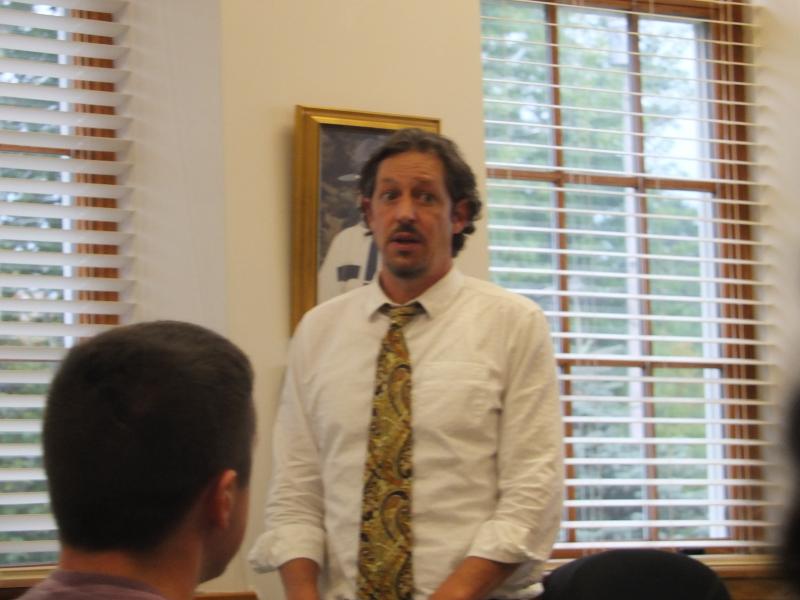A meeting of angels
A group of about 30 turned out at Damariscotta Town Hall on Monday, Sept. 19, to learn how they might volunteer to help people suffering from addiction.
The meeting was called by the new Lincoln County Recovery Collaborative, a group of medical professionals, law enforcement personnel and community volunteers known as angels, who would arrive at a police station when someone asked for help with his or her addiction, and help them get into treatment. Angels might also find themselves helping in other ways — helping a person negotiate the process of getting MaineCare, find transitional housing or “sober houses”, get help to keep body and soul together by applying for benefits, or get food through food banks.
More likely than not, said Eric Haram of the Addiction Resource Center in Damariscotta, their troubles aren’t just the addiction. They might be homeless. They might need to arrange for their kids or their pets to live with a relative or friend while they work on their own issues. They might need transportation to appointments and meetings because they don’t have a car and lost their license. They may not have a job and health insurance.
And all of the issues need to be dealt with immediately, and it’s far too much for a law enforcement officer to deal with while also trying to do his or her own job.
Enter the angels.
Many of the volunteers are people who have been touched by substance abuse in their lives, either because they’ve been addicted, or they’ve watched a loved one go through it.
They’re each prepared to offer what Haram said are the two things necessary to a successful recovery — hope and respect. “Everything else is details,” Haram said.
When an angel is paired with a person suffering from addiction, it is up to the angel to keep calm, and continue to reinforce why the person is seeking sobriety. Providing comfort items, such as water or snacks, and assuring the patient that the angel will remain with him or her until they have found help is key to the success of the initial encounter. During the intake session, the angel may discover other needs, such as immediate needs for housing, food, other unrelated mental or medical health care, transportation, or assistance with dependents.
The members of the collaborative have committed to make sure that the new patient will be seen in no more than three days. “It will probably be less than that,” Haram said. “And all situations are different. Some will get medication-assisted help, some will choose not to go that route. Others will need inpatient treatment. Some will be seen at ARC or at LincolnHealth.”
Haram said that medication-assisted treatment is best for most people, and that those getting the medication, known as Suboxone, are more likely to remain in recovery for a year or more, and far less likely to overdose.
After learning about the program, and doing some role-playing, angels turned in application forms and listened to the stories of people who have been in recovery for a long time, and people who are new to recovery.
Others who are interested in volunteering to assist people with substance abuse issues can get in touch with Karen-Ann Hagar at khagar@clcymca.org or 563-3477.





























